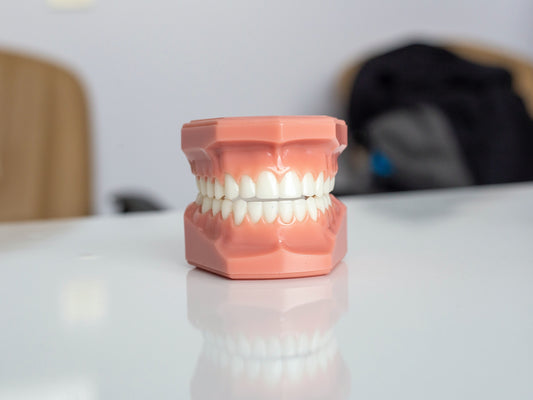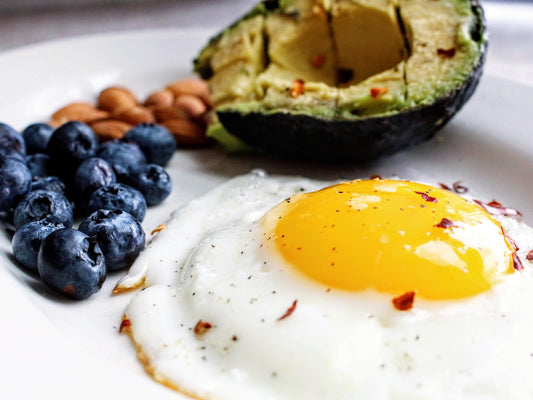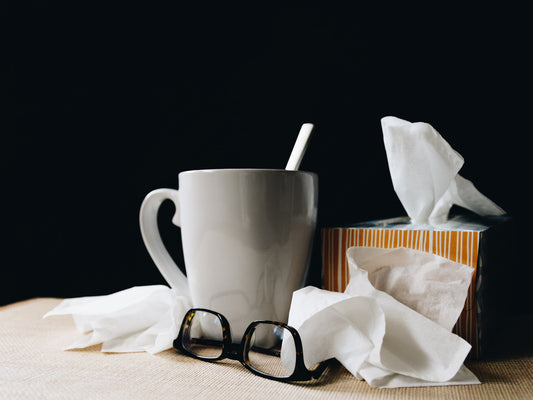Are you struggling with breastfeeding? You’re not alone.
Many mothers have a hard time breastfeeding, specifically when it comes to their milk supply.
One of the most common reasons for this is a lack of hydration. Dehydration can make breastfeeding extra-challenging. Luckily, though, there are lots of steps you can take to manage your fluid intake and hopefully make the breastfeeding process easier. As always, if you’re unsure or have any further questions, we always recommend you check with your doctor.
Not sure if you’re hydrated? Don’t know where to begin when it comes to increasing hydration? Outlined below are answers to all of your most pressing questions.
Dehydration and Breastfeeding: What’s the Link?
Did you know that your breast milk is 90 percent water [1]?
When you stop and think about it, this makes sense. After all, breast milk is responsible for keeping your baby both nourished and hydrated.

It also makes sense that you would need more water than usual while breastfeeding. Extra water can help you to stay hydrated and keep up your milk supply when you’re breastfeeding your baby.
Dehydration and Milk Supply
Long-term dehydration can have a negative impact on your milk supply.
One day of getting less water than usual typically isn’t a big deal. If you’re consistently under-hydrating, though, your body likely will not have enough fluids available to produce breast milk.
Keep in mind, too, that if you’re dehydrated while breastfeeding, your body will take water from you to give to your baby. As a result, you might start to experience a variety of symptoms associated with dehydration, including the following:
- Chapped lips
- Dry or itchy skin
- Headaches
- Fatigue
- Mood swings
As a new mom, you don’t have time to deal with these issues while also trying to care for a newborn. That’s why it’s important to be proactive and take your hydration seriously.
Baby Dehydration While Breastfeeding
If you’re dehydrated and your milk supply suffers, there’s also a greater risk of your baby becoming dehydrated.
Remember, your newborn gets all of their fluids from your breastmilk. If you’re not able to produce enough for them, they could become dehydrated.
If a newborn or infant is dehydrated, they might exhibit the following symptoms:
- Dark yellow, orange, or brown urine
- Dry lips and mouth
- Excessive sleepiness
- Irritability
- Fewer than six wet diapers during a 24-hour period
- No tears when crying
- Sunken soft spot on the head
Again, one or two days or reduced water intake will not put you or your baby at risk. Long-term dehydration, though, can have serious implications for the both of you.
Tips for Staying Hydrated While Breastfeeding
We’ve covered the importance of general hydration as it relates to breastfeeding. But how do you tell if you’re getting enough fluids, or up your hydration game? Keep an eye out on the following and try incorporating some of these suggestions into your routine:
Know the Signs
Make sure you can spot the signs of dehydration early. The sooner you can address your dehydration, the easier it will be to turn things around and avoid any long-term issues while breastfeeding.
Change in Urine Color
In addition to the signs mentioned above (chapped lips, dry skin, headaches, etc.), another common sign associated with dehydration is a change in urine color.
Ideally, your urine will be light or medium-yellow. Think of the color of lemonade or light beer. If your urine is much darker than this, it’s likely a sign that you’re dehydrated and probably need to consume more fluids as soon as possible.
Extreme Thirst
Extreme thirst is another symptom to watch for.
Because of the hormone oxytocin, which is released during breastfeeding sessions, your thirst cues may increase while nursing. This can encourage you to drink more water (your body knows that it needs more to make breast milk) [2]. Being thirstier than usual while breastfeeding is normal. That doesn’t mean you have to just muscle through the thirst, though.
Make sure you’re taking steps (like those outlined below) to avoid extreme thirst. Otherwise, you’re more likely to find yourself dealing with dehydration.
Keep a Water Bottle Close By
When you’re taking care of a newborn, you don’t always have the luxury of heading to the kitchen for a glass of water. Tricky to do if you’re holding your baby and their sound asleep, right?
One great suggestion is to keep a water bottle close by, especially in your baby’s room. Reusable bottles can also be handy to have around the house or keep near your nursing station or rocking chair to help keep you hydrated even when junior is sleeping soundly. That way, you always have easy access to water and can take a sip (or two or three) whenever you need it.
Set Timers
If you find that you’re forgetting to drink water, even with a water bottle close by, you might need to set timers to help you remember.
Using the alarm on your phone or watch can be a great way to remind you to drink water at regular intervals throughout the day. For example, you could have alarms go off at 8am,10am, 12pm, etc. to remind you to take a hydration break.

Don’t like the idea of alarms going off every couple of hours? You could also post sticky notes around the house to encourage you to drink more water. Put a note on the bathroom mirror, on the baby’s changing table, above the baby’s crib, etc. Place them in the areas you pass by most often so that you have plenty of easy-to-spot reminders. Bonus points if you can make a game about it, or have your partner hide them every day to help remind you when you “stumble” upon them in the house.
Drink When Baby Drinks
Another helpful tip to remember to drink water is to drink whenever your baby is drinking (or, to be more accurate, feeding).
Newborns need to breastfeed about 8-12 times per day [3]. If you drink a glass of water before or after each feeding, that makes it a lot easier for you to meet your hydration goals.
If you don’t have a habit of drinking water regularly, this tactic can be very effective in helping to build a consistent habit. Pairing drinking water with another routine anchor or keystone habit makes it easier to regularly integrate it and complete the task at hand.
Increase Intake of Other Liquids
Don’t love drinking plain water? Remember, you don’t have to only drink water to stay hydrated.
Most liquids (with a few exceptions) can count toward your daily hydration. Here are some great examples of other liquids you can include in your diet to fill in the gaps:
- Dairy milk
- Nut milk
- Decaffeinated coffee and tea
- Fruit and vegetable juice
- Soups and broths
Fruits like oranges, berries, and watermelon contain lots of water, too. So do vegetables like tomatoes, cucumbers, and lettuce. Making a salad or snack on some berries can help to increase your daily fluid intake while also getting some extra vitamins and minerals in your diet.
Include Electrolytes
Finally, make sure you’re also monitoring your electrolyte intake, not just your water intake.
Electrolytes are minerals that, among other things, help you to stay hydrated. Some of the most important ones, from a hydration standpoint, include sodium, magnesium, and potassium [7]. Electrolytes are present in a variety of foods. As a breastfeeding mom, though, it can be hard to make sure you’re getting all these different foods in your diet (it can be hard to just remember to eat, period).
If you run into this problem, electrolyte drink mixes are a good alternative that can help you get everything you need in one convenient package. If you’re looking for ones without caffeine, be sure to check out our HYDRATE and HYDRATE NO ADDED SUGAR options for balanced electrolytes to rapidly hydrate you throughout the day.

Unsure of where to start? Our drink mixes are free of any artificial sweeteners, synthetic colors, and stevia and our signature HYDRATE products contain just enough sugar to speed up the hydration process. The small amount of sugar included can improve your body’s rate of water absorption, especially when the sugar is combined with electrolytes like sodium. It’s all part of the science-backed formula that makes Hydrant a great option for consistent, daily hydration.
Takeaways
Breastfeeding is challenging enough. Don’t add worries about becoming dehydrated on top of it!
Give the tips outlined above a try while you’re on your breastfeeding journey. Hopefully, they’ll help you manage your hydration so you can stay healthy and keep your little one satisfied.



























